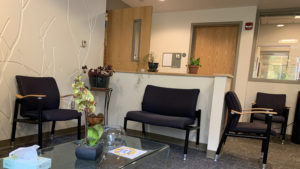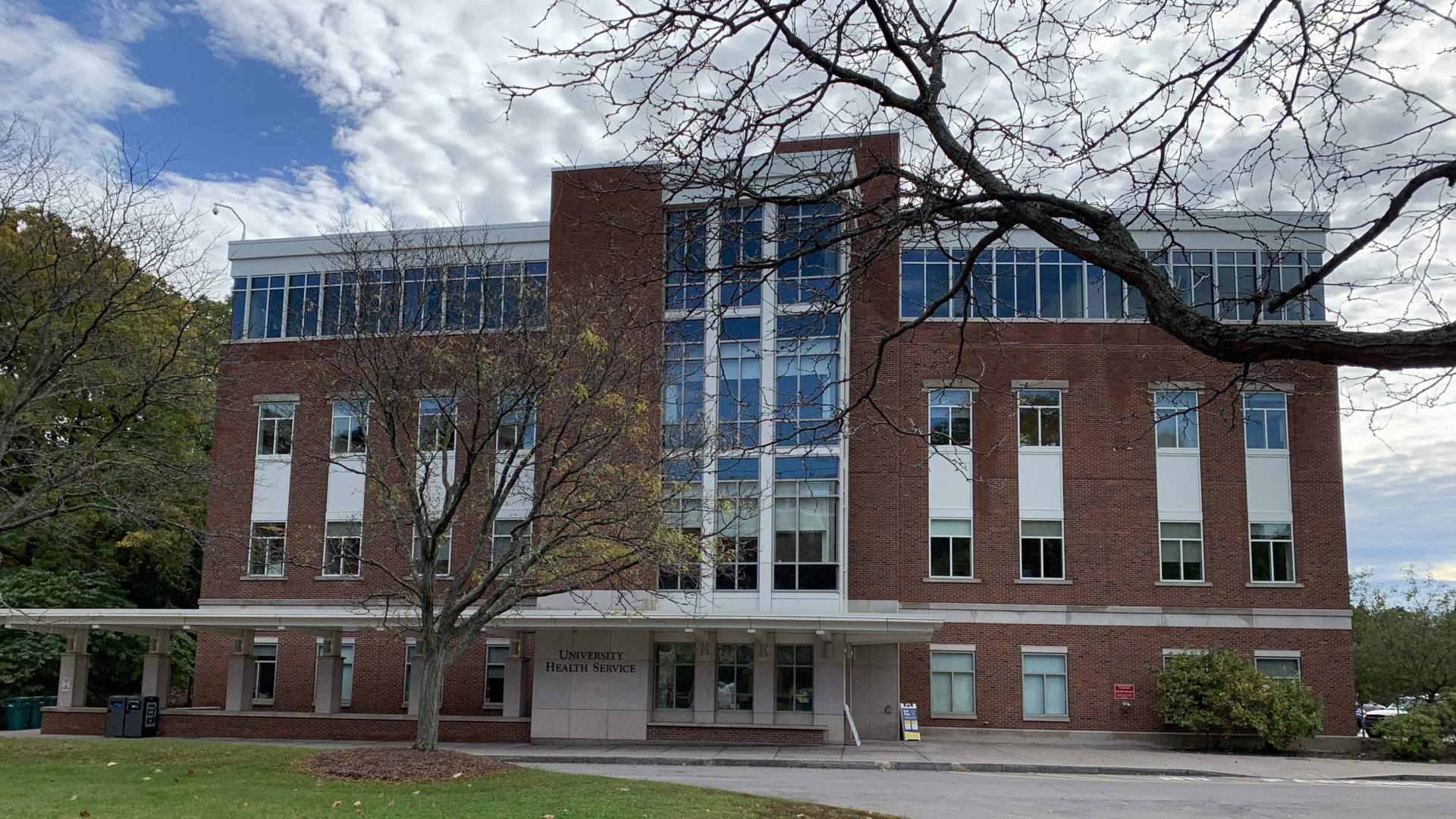University Health Service Building (Oct. 2021)
Although it can be intimidating to reach out for help, finding a safe environment to open up can be an extremely valuable way to improve your mental wellbeing. The University Counseling Center (UCC) aims to provide this safe environment for students through its variety of therapy services.
For anyone having doubts about exploring UR’s counseling center, this guide will address some of the initial questions you may have when getting started at UCC.

General Information
- Who qualifies for UCC’s services? UCC is open to all undergraduate and graduate students at the University. Whether you’re a domestic or international student, the process for utilizing UCC’s services is the same.
- What is UCC’s privacy policy? Going to therapy at UCC is completely confidential unless your therapist believes there are safety concerns.
- How many individual therapy appointments are allowed? The number of individual therapy sessions you’re allowed will depend on the treatment plan your clinician develops. (For more info, see #8 and 9.)
- How long do therapy sessions last? Individual appointments are usually 50 minutes each. These appointments can be spaced out however you wish.
- How can I continue therapy after running out of UCC sessions? For students interested in long-term treatment, UCC can help with matching you to an appropriate off-campus provider. (For more info, see #13.)
- Where are appointments located? UCC has office locations in River Campus (on the third floor of the UHS Building), the Eastman School of Music, and the UR Medical Center. Additionally, UCC offers teletherapy appointments for students who prefer to meet over Zoom (which is currently the default option due to COVID-19).
Booking Your First Appointment
- Where do I begin? The first step is to call UCC at (585) 275-3113. From there, you’ll be asked to complete a few brief forms on UHSConnect prior to your appointment. For a checklist on how to schedule an appointment, visit the UCC website.
- What are initial assessments appointments? Initial assessments are a way for UCC to get a general sense of your situation and develop a treatment plan based on your concerns and history. Your designated clinician will ask questions to gauge which services will most benefit you, but there are no wrong answers. You can treat the conversation as a low-stress opportunity to share how you’ve been feeling and what your goals for therapy are.
- What happens after my initial assessment? Near the end of your assessment, your clinician will recommend how to proceed with the resources best suited for your needs. This could include short-term individual or group therapy at UCC, long-term therapy off campus, support with medication management, or working with another office on campus.
- How long do initial assessments take? Typically, initial assessment appointments take 30 minutes to an hour, though in some cases multiple sessions are needed.
Other Useful Information
- What do most people not know about UCC? One misunderstanding that some students have about UCC is that there isn’t diversity among therapists. However, UCC’s current staff is comprised of therapists from various levels of training and diverse backgrounds. You can request therapists from a certain background (such as LGBTQ+, gender, age, or race) if you’d prefer to work with someone that has a similar identity as you, and UCC will work to accommodate your request if a therapist of that identity is available.
- What should you do if your therapy sessions don’t seem to be helping? If you want your therapist to approach your sessions differently, UCC therapists are happy to work with you to help you get the most of your experience. If you’d prefer to work with another therapist, you can call the front desk and ask to be reassigned. UCC Director Dr. Brigid Cahill affirmed that the “therapy relationship is vital,” so you can also reach out to her if your concerns about therapy need to be further explored.
- What should you do if on-campus resources aren’t working for you? If you feel like on-campus resources aren’t working for you, UCC can assist you with finding off-campus support. UCC uses the online referral database ThrivingCampus to help students find specialized treatment for their therapy goals.
For an overview of other mental health resources offered at the University, check out this article from the admissions blog. To learn more about UCC, visit the UCC website here.
(Special thanks to UCC Director Dr. Brigid Cahill for participating in an interview to help formulate this article!)

